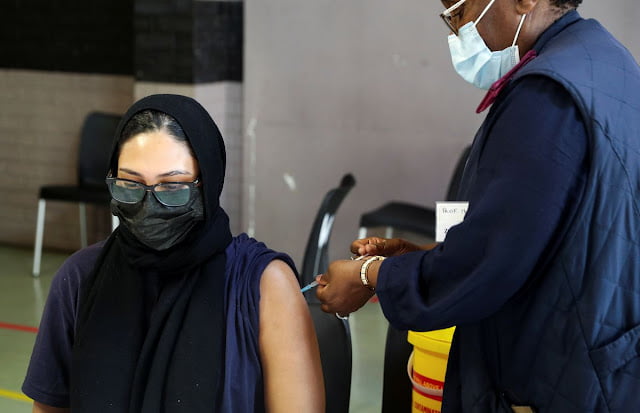 |
| A healthcare worker administers the coronavirus disease (COVID-19) vaccine to a pregnant woman, amidst the spread of the SARS-CoV-2 variant Omicron, in Johannesburg, South Africa, December 9, 2021. REUTERS/ Sumaya Hisham |
Unvaccinated people infected with the Omicron variant of coronavirus may be less prone to severe illness and requiring hospital care or dying than was the case with previous variants, a South African study showed on Friday.
The study, by the National Institute of Communicable Diseases (NICD) in the Western Cape region, which has not yet been peer-reviewed, concluded.compared about 11,600 patients from the first three COVID-19 waves with about 5,100 from the Omicron-driven wave that began in November.
Omicron globally has tended to cause less severe disease, and proportionally fewer hospital admissions and deaths, than previous variants.
Scientists are trying to determine the extent to which this is because of higher immunity rates engendered by vaccination or past illness, or Omicron is intrinsically less nasty.
The study concluded that about a quarter of the reduced risk of severe disease with Omicron was attributable to characteristics of the virus itself.
“In the Omicron-driven wave, severe COVID-19 outcomes were reduced mostly due to protection conferred by prior infection and/or vaccination, but intrinsically reduced virulence may account for an approximately 25% reduced risk of severe hospitalisation or death compared to Delta,” the study said.







